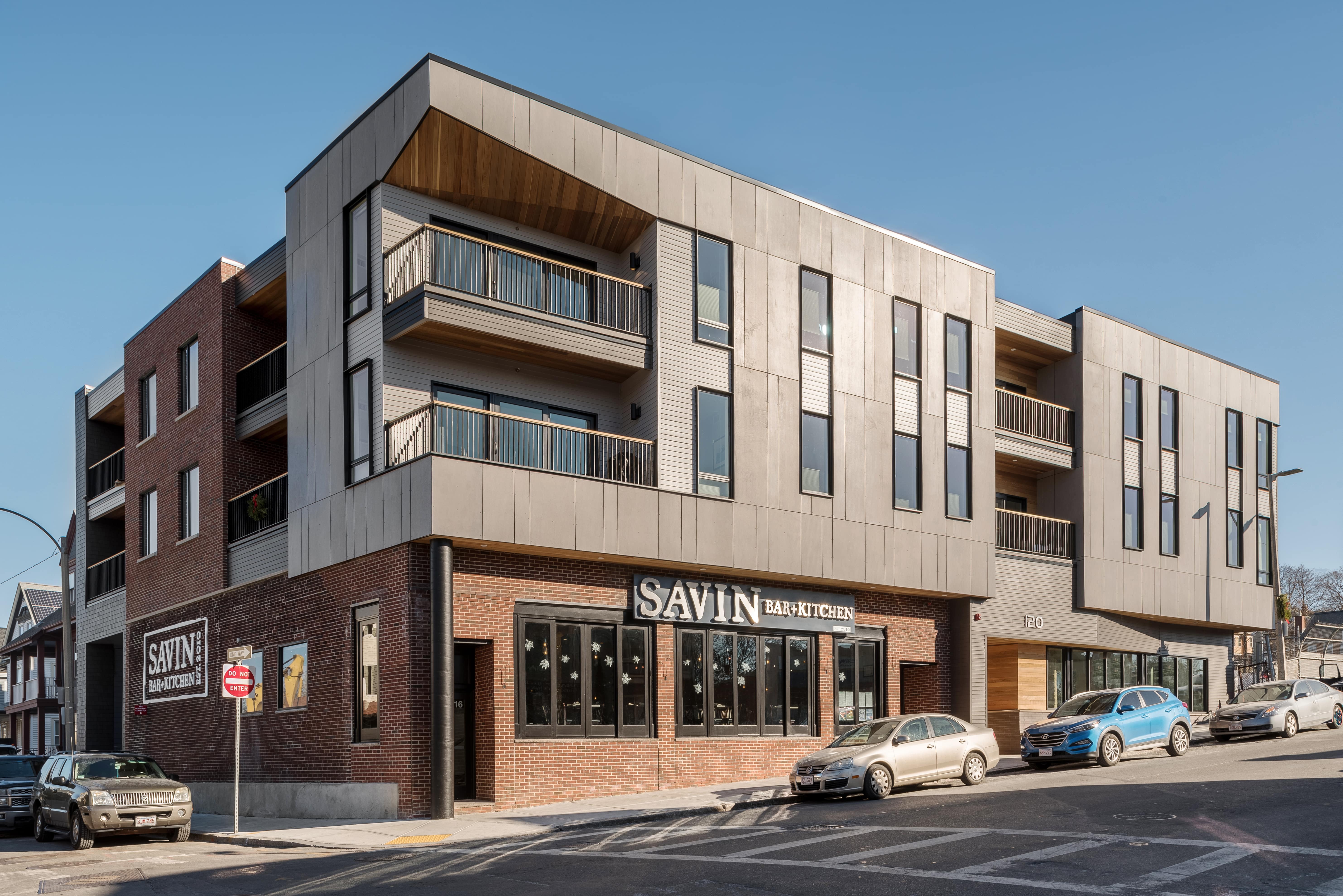
Karin Brandt
Earlier this month, the Boston Zoning Board of Appeals rejected a project that would have brought a sustainable multifamily building where 40 percent of its units were affordable housing and space for local businesses at below-market rents to the Roslindale neighborhood.
The reason? The project at 4198 Washington St. did not include on-site parking, in a Boston neighborhood that where multiple bus routes intersect, and which has an MBTA commuter rail station within walking distance. This decision was in direct opposition to the vision outlined for a more equitable city in Imagine Boston 2030, which placed housing affordability as the No. 1 priority and included modernizing policy to reduce parking demand as a key transportation goal.
If parking spaces trumped affordable housing in a neighborhood with one of the lowest numbers of income-restricted units in the city of Boston (12 percent in Roslindale versus 19 percent citywide), it begs the question: Why have a citywide planning framework if it’s ignored when decisions are being made?
This decision to prioritize cars instead of people sparked outcries from housing advocates across the city not only because of the parking issue but also because of the strong community support for the project and the developer’s dedication to incorporating community feedback into the final plans. Yet, at the same time, issues of equity were a primary concern cited by ZBA members; in particular, a lack of on-site parking was flagged as inequitable. Who decides what equitable planning priorities are in Boston? It is not the responsibility of appointed board members to determine what planning priorities create a more equitable Boston because they, in fact, are not planners or elected leaders.
ZBA Ignored Scores of Project Supporters
The Roslindale project’s developer, Arx Urban, started initial engagement with the community in fall 2020 and then launched a site on coUrbanize in February 2021 to empower people to leave their feedback, ideas and questions online, even if they couldn’t make it to a public meeting. Arx Urban tackled the parking issue head-on from the very first meeting, coming up with a solution to provide future tenants with a monthly stipend for public transportation, bike-share and car-share programs.
Based on other community feedback, the building height was reduced and the structure was set back from a nearby school. Suggestions to collaborate on the school with a mural, add a dedicated parking space for electric car-share and include green space and widen sidewalks were also incorporated.
Overall, the Arx Urban team received 52 letters of support for the project and more than 160 comments on coUrbanize, 92 percent with a positive or neutral sentiment. The project also received vocal support from community leaders and elected officials. In short, it would have set a precedent for the kinds of inclusive, affordable and sustainable developments Boston needs.
And yet, the ZBA still rejected the project.
Hope for Change on Horizon
So as a community, where do we go from here?
On Dec. 8, the Zoning Commission is set to make a final decision on a proposal to eliminate off-street parking minimums for affordable housing developments, which has been endorsed by the Boston City Council and the Boston Planning & Development Agency board. That will eliminate a tremendous, unnecessary barrier for affordable housing.
However, that only addresses a symptom, rather than the problem itself. What is the value of time and cost-intensive citywide plans like Imagine Boston 2030 if they don’t guide policy and decisions?
This Roslindale project fulfilled this vision but that seemingly didn’t matter. If the boards such as the ZBA aren’t following these priorities and are instead trying to set their own agendas – like declaring parking an equity issue, in the case of this project – then what is the point of city planning, especially when ZBA meetings are held at extremely inconvenient times for the average person hoping to attend and influence the decisions shaping their neighborhood?
There is an obvious need to educate city residents and officials about the vision that should be steering the policy and development decisions shaping the future of Boston. The average community member probably doesn’t know much about Imagine Boston 2030, even if they participated in the engagement activities related to it years ago. Perhaps even more importantly, this plan should be ingrained in the mission and guide the direction of boards and agencies like the ZBA. The result could be better alignment about where we are headed as a city and decisions with less outcry because they reflect our shared goals.
Mayor Michelle Wu is ushering in a new era of bold, ambitious change for a more equitable Boston. Housing advocates, myself included, are energized by her willingness to overhaul the regulatory process and requirements that are perpetuating the housing crisis in our city – that includes looking at the inherent issues with our city boards, the inequities of public meetings and putting an emphasis on education around planning priorities.
Karin Brandt is CEO and founder of coUrbanize.





